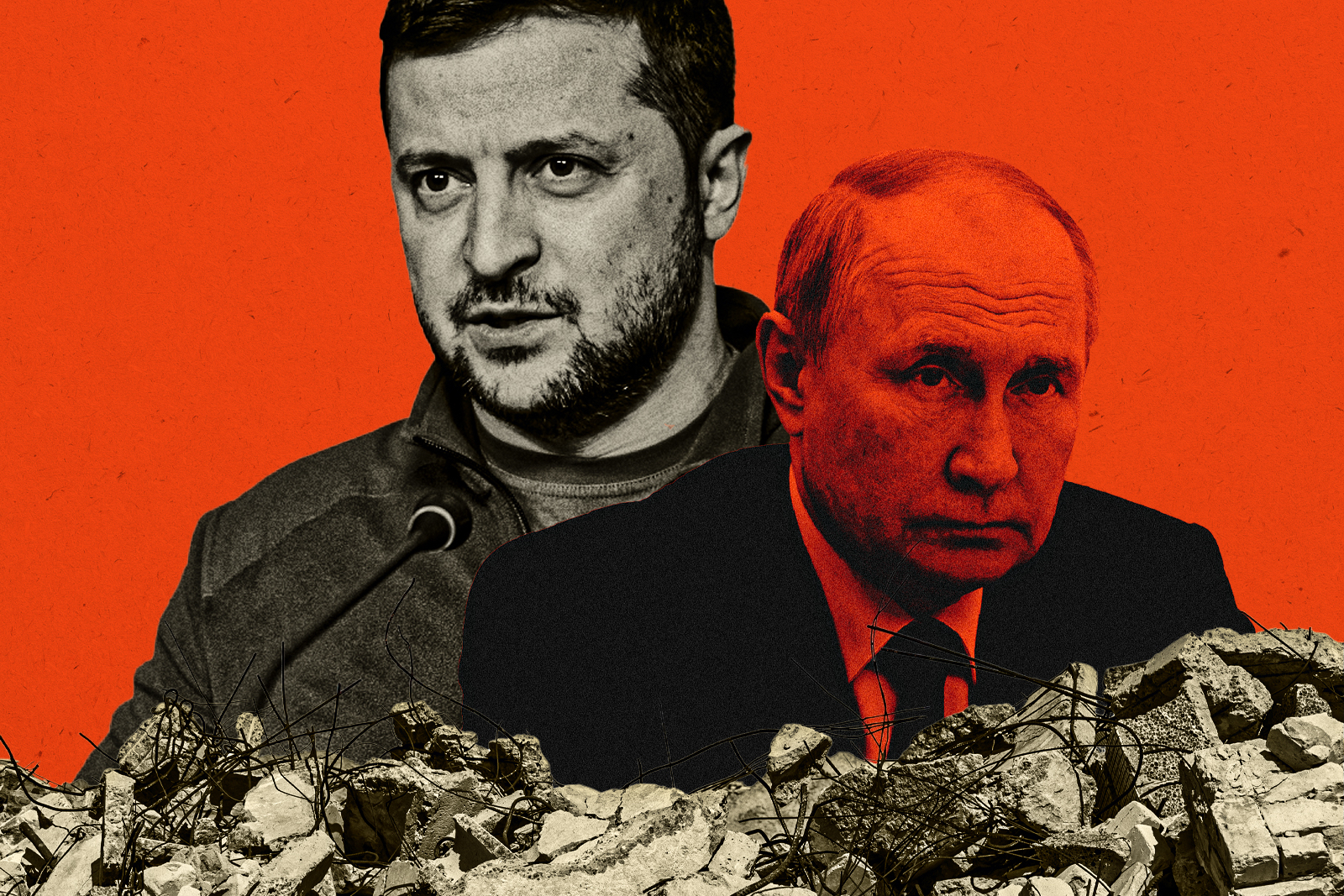
Branding Russia a ‘State Sponsor of Terrorism’ Won’t Stop the Missiles
The EU parliament has declared Russia to be a state sponsor of terrorism. The largely symbolic resolution, which passed by a 494-58 vote on November 23, has no particular real-world consequences, but reflects MEPs’ condemnation of Russia’s “deliberate physical destruction of civilian infrastructure and mass murder of Ukrainian civilians with the aim of eliminating the Ukrainian people.”
The parliament urged the European Union’s 27 member states to adopt the designation “with all the negative consequences this implies.”
Thanking the EU for this move, Volodymyr Zelensky, Ukraine’s president, summed the situation up in two sentences: “Today, the European parliament recognised Russia as a terrorist state…And then Russia proved that all this is true by using 67 missiles against our infrastructure, our energy grid, and ordinary people.”
Wednesday, November 23 began with a reported Russian missile strike on a maternity ward in a hospital in southern Ukraine, which killed a newborn baby. It was the latest of almost recorded 700 assaults on medical facilities during the nine-month invasion.
In the afternoon, the Russians responded with the launch of 70 missiles and five attack drones. Ukraine’s air defence downed 51 of the missiles and all the Iranian-supplied drones. But those that reached targets knocked out power across the country.
Ukraine was already without half of its electricity grid because of waves of Russian assaults since October 10. Three nuclear plants were taken offline, joining the Russia-occupied Zaporizhia nuclear power plant, the largest in Europe, which shut down in September.
Ten people were killed across Ukraine – seven in the Kyiv region alone. Three died when a two-story residential building was destroyed. The toll would have been higher had a kindergarten on the lower ground floor not been evacuated when air raid sirens sounded.
Zelensky summarised the situation in his address to the UN Security Council: “We cannot be hostage to one international terrorist…When we have the temperature below zero, and scores of millions of people without energy supplies, without heating, without water, this is an obvious crime against humanity.”
Symbolism and substance
On its own, the European parliament’s designation of the Russian “terrorist state” is symbolic rather than substantive. The MEPs have no authority to add to the international sanctions on Moscow, the investigations into Russian war crimes, or the financial and military support for Ukraine’s resistance.
But it’s a powerful symbol which adds to substance. For months, the Zelensky government has sought the designation. Now, as Ukraine faces the possibility of a harsh winter and Putin’s attempt to break its people by depriving them of heat and water, Ukrainians have been assured that Europe is watching.
The resolution also calls on the EU to put in place the “proper legal framework” to add Russia to an official list of terrorist states, and member states have been prompted to proceed with their own measures. Five European Union countries — Poland, the Czech Republic, Latvia, Lithuania, and Estonia – have already labeled Russia as a state sponsor of terrorism.
Defeating Putin
The extent of additional restrictions on Moscow is still to be determined. EU members are debating the level of the price cap to be imposed on Russian oil. It is thought that Hungary could be an impediment to further sanctions, as its president, Viktor Orbán, is friendly towards Vladimir Putin. But even the reinforcement of existing measures is a powerful political statement adding to the isolation of the Kremlin.
One of Putin’s many unsuccessful gambles in this invasion was that he could rally support from other countries through propaganda, disinformation, pressure, and bargaining. That support is now largely confined to “kamikaze” drones from Iran, munitions from North Korea, and the allegiance of Putin’s neighbouring vassal state, Belarus.
At the G20 summit last week, China’s Xi Jinping further distanced Beijing from the Kremlin’s attacks and India’s Narendra Modi sat on the fence, offering only anodyne statements about “diplomacy.”
Meanwhile, there is no sign of international assistance to Ukraine easing. Amid the missile strikes, countries from Sweden to Germany have committed to supplying air defence systems and munitions. Earlier this month, the U.S. announced another $400 million in military aid including weapons, munitions, and air defence equipment. For the first time, the UK is supplying helicopters.
Putin is now facing defeat on the battlefield. Since August, Ukrainian counter-offensives have regained territory in the northeast and south, with the liberation of strategic cities such as Izyum, Lyman, and – most recently – Kherson. Strikes have destroyed or degraded Russia’s bases, ammunition depots, logistics, and supply routes.
Putin’s “annexation” of four Ukraine provinces, two in the east and two in the south, is now in tatters. The question is no longer whether Russia can hold areas it has seized this year, but whether Ukraine will regain territory — in parts of the Donetsk and Luhansk regions in the east and Crimea in the south — occupied by Moscow and its proxies since 2014.
So the Kremlin’s last hope is the winter strikes, even as its missile stocks are being depleted and it relies on Iran for drones. Before spring, it has to break the Ukrainian people, or at least the support for those people from outside Ukraine.
The designation of Russia as a “terrorist” won’t stop the missiles. But as Ukrainians repair and recover each time, it is the necessary marker that Putin, the Kremlin, and their allies will not have unrestricted political space for their attacks — and they will not escape accountability when those attacks ultimately fail.
This article was originally published on The Conversation. Read the original article.
